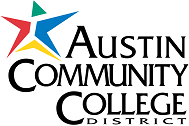C++ Graphics Setup¶
Read time: 15 minutes (3970 words)
For several lab projects, you will need to add several files to your C++ installation so you can generate graphics displays. This is not difficult, but it will require installing a few new files, and setting up the project Makefile so you can build a graphics application.
Warning
Several of you are using Dev-C++ (or another IDE) and not the command line environment we setup in this class. From this point forward, your projects must use the command line tools, and be set up with a proper Makefile. We will be adding automated testing to your coding skill set, and that is not easily done using most IDE tools.
Mac Setup¶
In order to build simple graphics applications, we need a few additional components. For Mac users, the compiler you are using is part of the XCode package, which you must install from the Apple App Store. Fortunately, at least for now, Apple includes all the components we need to build our graphics projects. All we need to do is set up a project, and create a suitable Makefile as described below, and add the two graphics files I provide. These notes will walk you through those steps.
Windows Setup¶
Getting things running on the PC turned out to be a bit involved, but I finally figured out how to get things working.
We will need to install a package called freeglut. The file you need is
provided here:
Once this file is on your system, use the File Explorer program to
“Extract” the files in this .zip file. This file is a compressed file with
several folders in it.
You will find one major folder named freeglut inside this package, and
three other folders under that.
Use the Windows Explorer program to move the entire freeglut folder and
its contents into a folder named tools at the top of your C drive. You
will end up with a folder named C:\tools\freeglut\ on your system. If you
followed my advice on installing tools on your system, this tools folder
should already exist. If not, just create it using Windows Explorer.
We need to copy one file from inside of the freeglut folder to another
protected place on your system.
Note
You may be asked for the “Administrator” password to do this. Just use your normal logon password. (If this is not your machine, you may need to find the owner.
32-bit Users¶
If your system is a 32-bit one (or you installed the 32-bit compiler) Your
compiler may live in the C:\Program Files (x86)\mingw-w64 folder. Locate the
following file:
C:\tools\freeglut\bin\freeglut.dll
Copy that file into this folder:
C:\Windows\SysWOW64
64-bit Users¶
If you have a 64-bit system, and you installed the 64-bit compiler, your
compiler may be located in the C:\Program Files\mingw-w64 folder. Locate this
file:
C:\tools\freeglut\bin\x64\freeglut.dll
Copy that file into this folder:
C:\Windows\System32
Note
Windows has really strange naming conventions. We are placing a 64-bit library in a folder with a name that says 32 in it. If we are using 32-bit code we place the library file in a folder with 64 in it. That makes no sense, Microsoft!
Graphics Project Files¶
For all graphics projects we will need a few extra files.
Next, download these files and save them somewhere on your system, where you can find them later. (Not in a project folder). You will need them for lab projects.
Testing The Graphics Setup¶
Note
I am crossing my fingers that I got all of this working right! I tested this on both a Windows 10 Home edition PC, and on my MacBook Pro laptop.
Step 1: Create Your Project¶
We will test things using a simple demo project.
Start off by building a project folder. Put this outside of any class repositories (perhaps inside your cosc1337 folder):
$ mkdir GraphicsDemo
$ cd GraphicsDemo
$ mkdir src
$ mkdir lib
$ mkdir include
Note
That sequence will work on Windows systems.
Place the Graphics.cpp file in the lib folder, and the Graphics.h``
file in the include folder. Place the main.cpp file in the src
folder and place the Makefile at the top of the project folder.
Step3: Test your Demo¶
With everything installed properly, you should be able to run your project as follows:
$ make
$ make run
With any luck, you should see graphics.
Did you see a red ball slide up the screen? If so, you are good to go, if not, see me for help!
